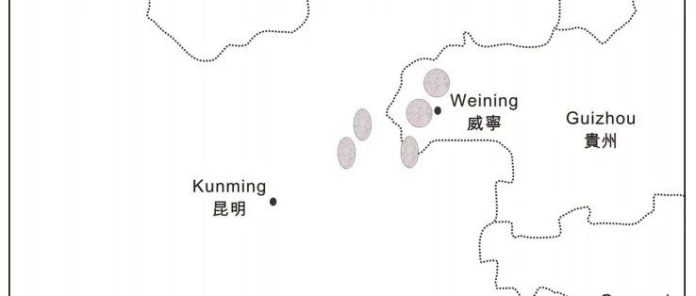论文介绍
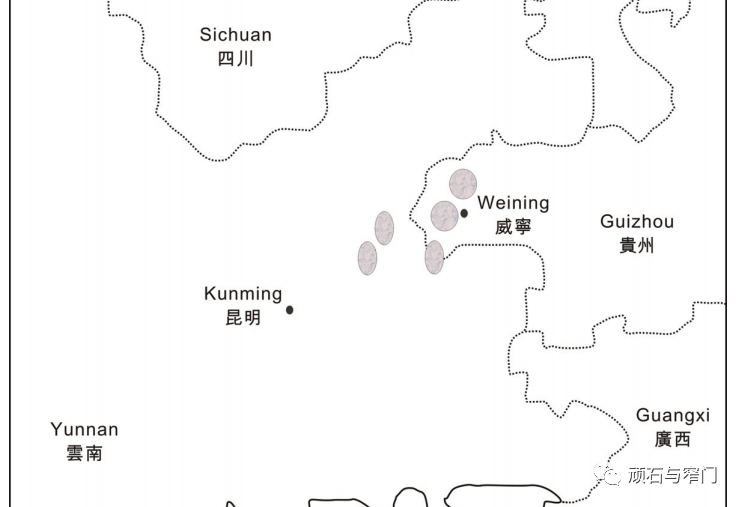
编/柏苗
在孤立型語言中的屈折量詞:
威寧苗語的稀有現象
馬嘉思(香港城市大學)
Walter Bisang (德國美因茲大學)
摘要
本文分析了在孤立型語言中少見的量詞系統。威寧苗語是中國貴州西部苗瑤語系中的一種語言,每個量詞可有十二種屈折變化的形式,在亞洲其他的孤立型語言中沒有這種現象,包括其他苗語也不存在這種現象,除威寧苗語外,其他語言的每個量詞只是一個單獨的詞,不能有屈折變化。本文著重從共時語音、語義、語用及句法結構的角度分析了威寧苗語的量詞系統。並在文章附錄列出了三種苗語和威寧苗語對應關係的量詞。
關鍵詞:屈折量詞,大小量詞,索引,威寧苗語
English
Classifier Declinations in an Isolating
Language:
On a Rarity in Weining Ahmao
Matthias Gerner
City University of Hong Kong
Walter Bisang
University of Mainz
In this paper, we scrutinize a rare classifier system in an isolating language. Weining Ahmao, a Miao-Yao language spoken in western Guizhou Province in the PRC, inflects each of its noun classifiers in twelve basic forms and stands in stark contrast to other isolating languages of East Asia (including other Miao languages), in which nominal classifiers are unique indeclinable morphemes. This paper focuses on a synchronic analysis of all aspects of the classifier system; i.e. a representation of its phonological, semantic, and pragmatic properties as well as the syntactic constructions in which the classifiers are involved. A data list of cognate classifiers from four Miao languages encapsulates the uniqueness of the Ahmao inflectional classifiers.
Key words: inflectional classifier, size classifier, indexical, Ahmao, Miao, China
来源:LANGUAGE AND LINGUISTICS 11.3:579-623, 2010.
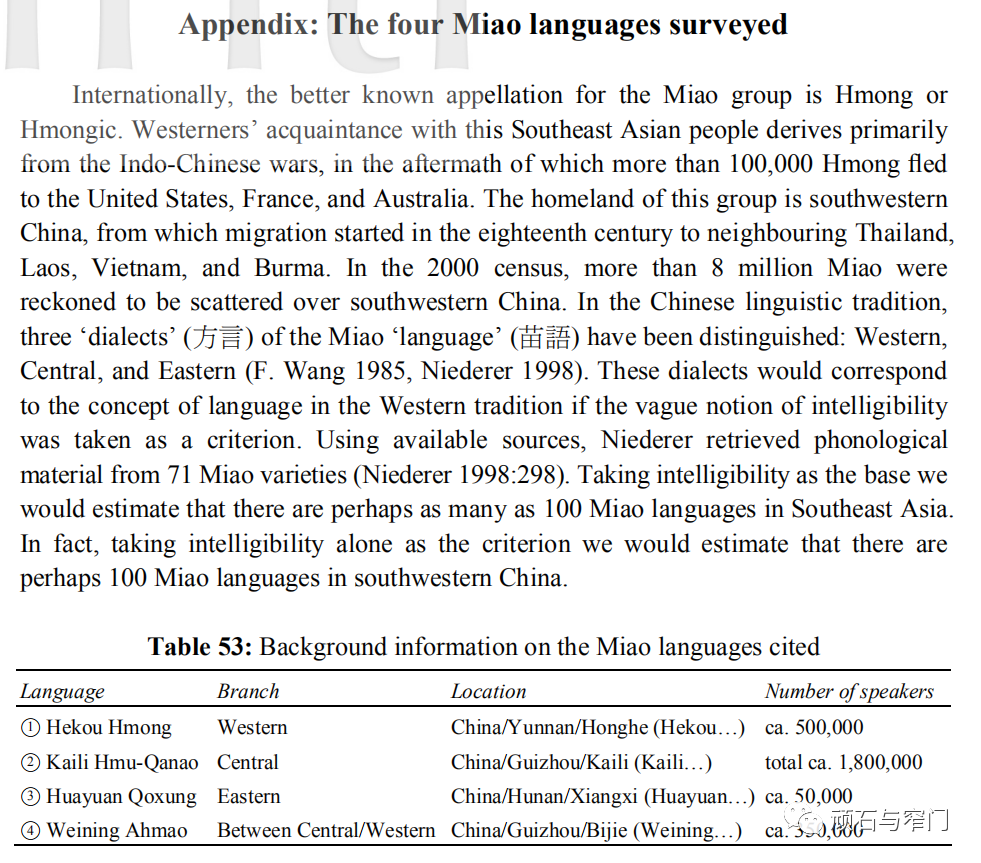
▲ 论文末角
作者介绍
One
Matthias Gerner,中文名马嘉思

一名具有数学背景的语言学学者,曾求学于德国,法国和澳大利亚。曾任香港城市大学语言学教授。自2019年任职于上海交通大学语言学教授。研究方向:数学语言学,类型学及中国西南地区的语言等。出版了三本学术专著和发表了75篇文章(其中多数是SSCI文章)。现担任期刊 “Linguistics”(SSCI)顾问编辑。曾获得 “德国国家学术服务基金会(DAAD)” 的奖学金及受邀于台湾中央研究院语言所顾问(A linguist with mathematical background. I was educated in Germany, France and Australia and appointed as professor at City University of Hong Kong before moving to Shanghai in 2019. I am interested in mathematical linguistics, in typology and in the languages of 因此uthwest China. I am currently consultative editor of “Linguistics” (Mouton de Gruyter, Berlin) and was a fellow of DAAD (Germany), and a member of the advisory board of the “Institute of Linguistics” (Academia Sinica, Taibei).)。
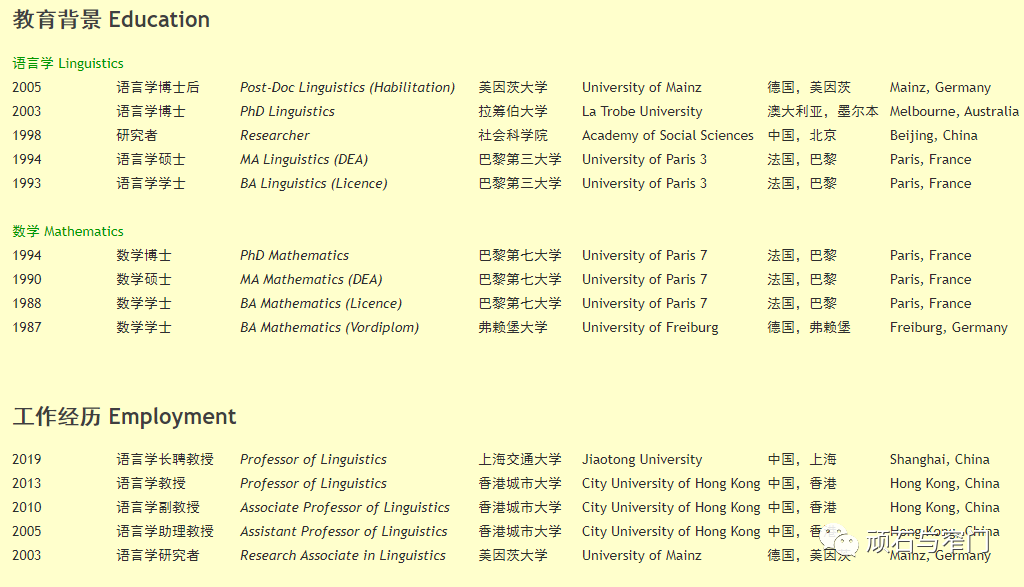
▲ 马嘉思履历
——来源:https://shss.sjtu.edu.cn/faculty/mgerner/
Two
Walter Bisang,沃尔特·比桑
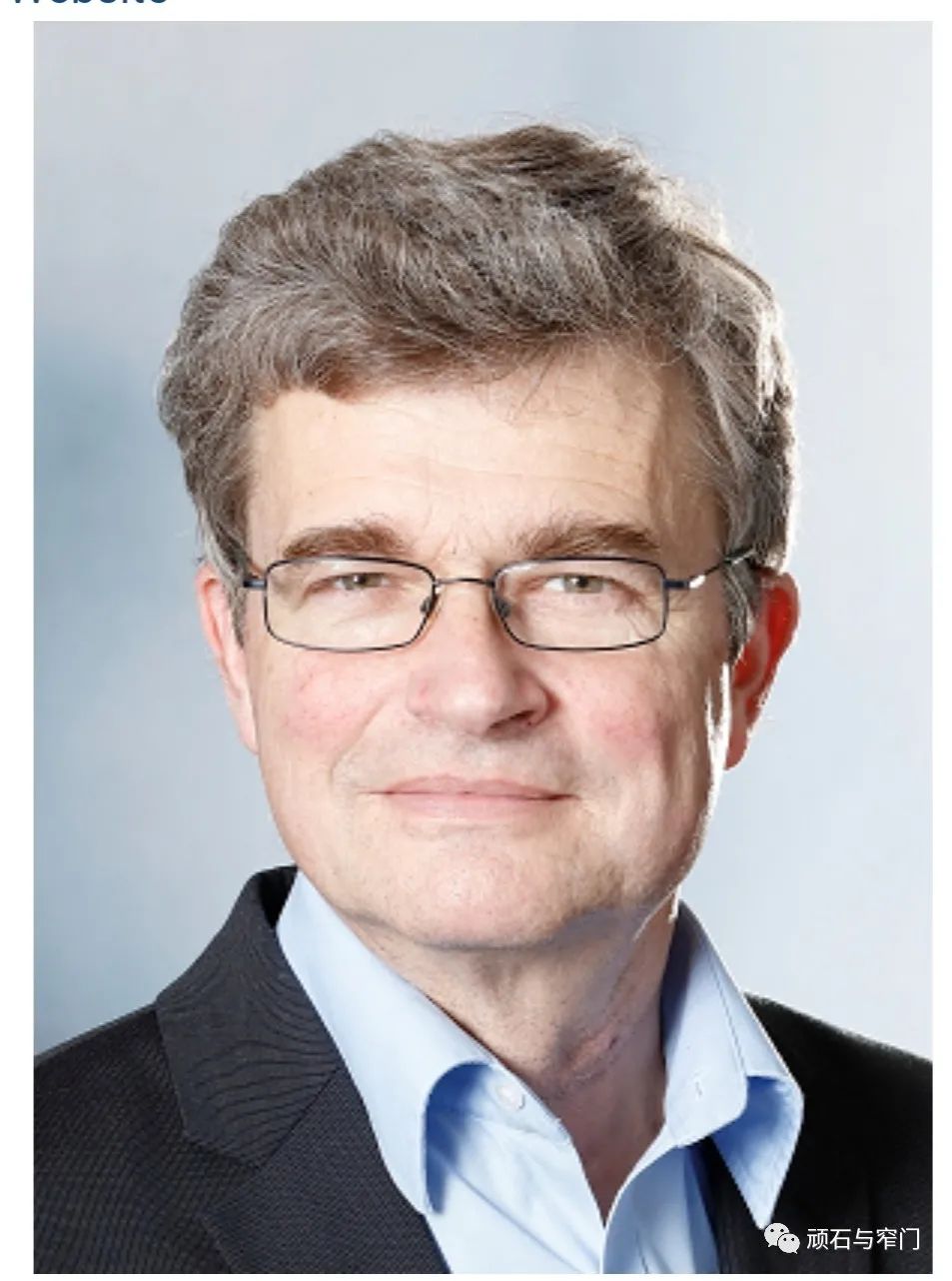
Research Interests
Comparative Linguistic Theory; Grammaticalization; Linguistic Contact, Systems of Classification of Grammatical Systems, particularly Numeral Classification; Verbalization; Argumentation; Semantic / Syntactical Interfacing, East and 因此uth-East Asian languages
Academic Background
Walter Bisang has been Professor of General and Comparative Linguistics at the Johannes Gutenberg University of Mainz since 1992 and researches worldwide structural variety in human language. From 1999 to 2008, he was Spokesperson for the Special Research Branch 295 ‘Kulturelle und Sprachliche Kontakte’ (Cultural and Linguistic Contact’) and since 2009 he has been Spokesperson for 因此CuM. Walter Bisang was Guest Professor in Bangkok (Chulaalongkorn University), Ile Ife (Nigeria), Melbourne (La Trobe University) and Paris (CRLAO). From 1996 to 2010, he released the series ‘Trends in Linguistics’ with H.H. Hock and W. Winter, published by Mouton de Gruyter. Walter Bisang is on the SFB-Grant committee of the DFG.
——来源:https://www.socum.uni-mainz.de/personen-2/prof-dr-walter-bisang/
履职
2018-2020: Chair Professorship at the University of Zhejiang, Department of Humanities (浙江大学讲座教授)
Since 06/2016: Regular member of the Academia Europaea
Since 2015: Regular member of the Academy of Sciences and Literature, Mainz (Akademie der Wissenschaften und Literatur, Mainz.
他说
My research focuses on patterns of regularity that can be observed in the cross-linguistic structural variation worldwide. From an evolutionary perspective, these patterns are the result of the success福l dif福sion of linguistic properties within and across speech communities due to the following factors that support their selection: (i) cognitive factors (e.g. parsing, competing motivations of economy vs. explicitness), (ii) communicative factors (e.g. pragmatic inference, information structure, discourse), (iii) physiological factors (production and perception of sounds), (iv) sociolinguistic and cultural factors and (v) Universal Grammar (if it exists). For that reason, I try to understand cross-linguistic variation by integrating linguistic typology with various theoretical as well as sociolinguistic approaches.
Currently, I am mostly interested in areal/geographic clusterings of grammatical properties and the question of the extent to which areality and history determine the patterns of regularity that can be observed cross-linguistically.
——来源:https://www.linguistik.fb05.uni-mainz.de/mitarbeiter/walter-bisang/

微信公众号 | 顽石与窄门
阿卯研究 | 资料分享
细听故事

每个落单的生命
都有其划过天际的火花


